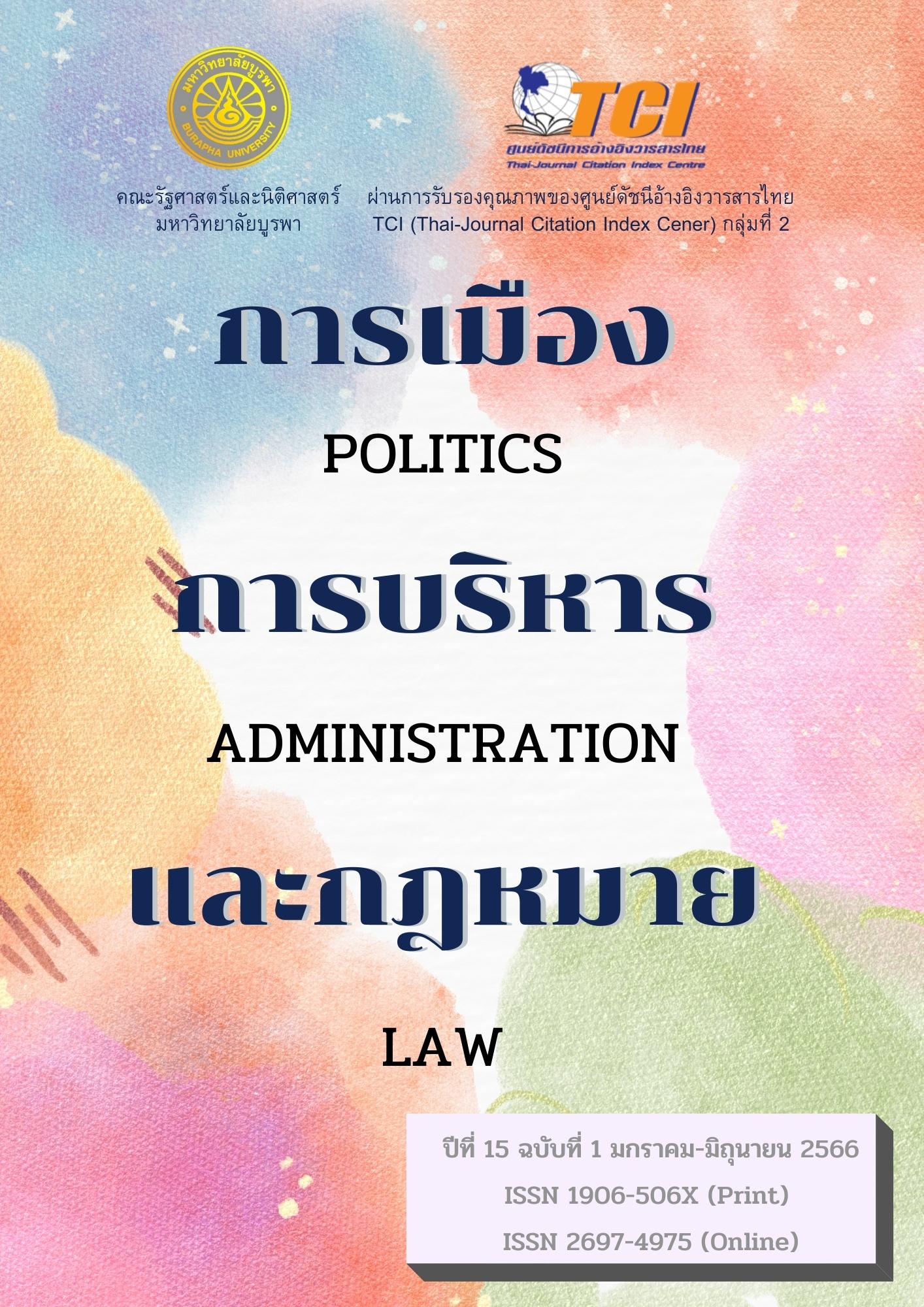The Problem, Limitation and Development Guidelines of Solid Waste Management of Large Municipalities in Industrial Areas in the Eastern Region of Thailand
Keywords:
Problems and limitations of solid waste management, Solid waste management, Large municipalities in industrial areasAbstract
The aim for this research was:1) To study problems and limitations and 2) To study development guidelines for solid waste management of large municipalities in industrial areas in the eastern region of Thailand. This study was a qualitative research by collecting data from document and in-depth interviews. The Key Informant of research were 19 Executives or representatives of government officials from provincial and local government who involved in waste management, People's Representative civil society organization. The instrument used in this study was a semi-structured interview. The data analysis composed of describing the data in phenomena or concrete and analyzing the data in a methodological triangle.
The results of study were that: 1. There are 7 major problems and limitations of solid waste management, namely 1) problems in management style 2) problems on the clarity of policies, national plans, strategies that are difficult to implement policies 3) limitations on administrative resources 4) constraints on public consciousness and participation; 5) social response problems; 6) laws and regulations; and 7) political problems. And 2. The development guidelines for solid waste management of large municipalities in industrial areas in the eastern region of Thailand consist of 4 issues: Approach 1: Upgrading innovation and technology in solid waste management; Approach 2: Developing readiness of administrative resources. Approach 3: Create awareness and integration of co-operative work, and Approach 4: Develop and improve the Strategic Plan. Management and Law
References
กรมควบคุมมลพิษ. (2562). รายงานสถานการณ์มลพิษของประเทศไทย ปี พ.ศ. 2561. วันที่ค้นข้อมูล 16 เมษายน พ.ศ. 2562, เข้าถึงได้จาก
https://www.pcd.go.th/publication/ 4175/
กรมควบคุมมลพิษ. (2561). รายงานสถานการณ์ขยะมูลฝอยชุมชนของประเทศไทย ปี พ.ศ. 2560. กรุงเทพฯ: ส่วนขยะมูลฝอยและสิ่งปฏิกูล สำนักจัดการกากของเสียและสาร
อันตราย.
การนิคมอุตสาหกรรมแห่งประเทศไทย. (2565). ข้อมูลโรงงานในเขตการนิคมแห่งประเทศไทย.(ออนไลน์). วันที่ค้นข้อมูล 16 กันยายน พ.ศ. 2564, เข้าถึงได้จาก
http://userdb.diw.go.th/ factory/ieat.asp
ณิชชา บูรณสิงห์. (2558). การบริหารจัดการขยะ: กรณีจังหวัดสงขลาและกรุงเทพมหานคร. กรุงเทพ: สำนักงานเลขาธิการสภาผู้แทนราษฎร.
สำนักงานสภาพัฒนาเศรษฐกิจและสังคมแห่งชาติ. (2562). ยุทธศาสตร์ชาติ กับ SDGs. วันที่ค้นข้อมูล 16เมษายน พ.ศ. 2562, เข้าถึงได้จาก https://sdgs.nesdc.go.th/
ยุทธศาสตร์ชาติ กับ SDGs
อนิณ อรุณเรืองสวัสดิ์. (2558). ขยะกำลังจะล้นโลก (ตอนที่ 1). จุลสารจับกระแสเศรษฐกิจสีเขียว (Green Economy Watch), 1(1), 2558.
Denhardt, R. B., & Denhardt, V. J. (2007). The New Public Service: Serving, Not Steering. NewYork: M.E. Sharpe, Inc.
Denhardt, R. B., & Denhardt, V. J. (2000). The New Public Service: Serving Rather than Steering. Public Administration Review, 6(60),
-559.
Hoornweg, D., & Bhada-Tata, P. (2012). What a Waste: A Global Review of Solid Waste Management. Urban development
series;knowledge papers no. 15., Washington, DC: World Bank.
Osborne, D., & Gaebler, T. (1992). Reinventing Government New York, NY. Journal of Leisure Research, 27(3), 302-304.
Downloads
Published
Issue
Section
License

This work is licensed under a Creative Commons Attribution-NonCommercial-NoDerivatives 4.0 International License.






